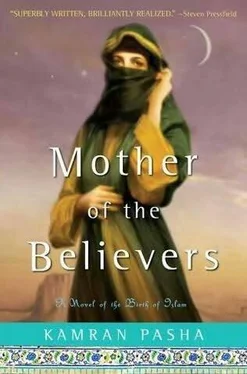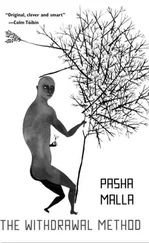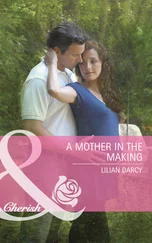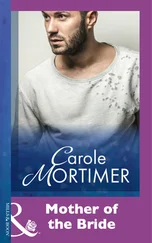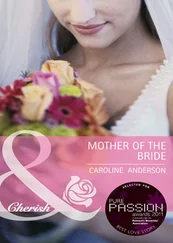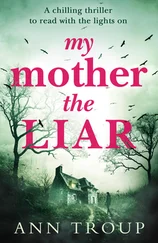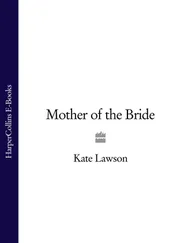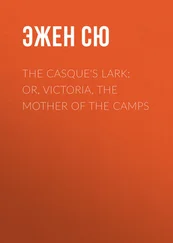“To Aqaba,” he said finally, and pulled me along faster across the rocky earth.
Aqaba? That made no sense. It was barren area at the base of a volcanic mound where caravans stopped to let their camels rest before the final climb through the hills and into the heart of Mecca.
“But there is nothing there except stones and sand!” Suddenly I didn’t like this mystery at all.
“Tonight there will be more,” my father said. Despite my continuous barrage of questions, he said nothing else.
We climbed over the last hill that formed the official boundary of the holy city. My father stopped at the peak and looked down into the valley of Mina below. I could see a haze of campfire in the distance, illuminating a vast tent city that must have housed a thousand pilgrims. These were people who could not afford lodgings in Mecca itself and camped outside while they were performing the rites of Pilgrimage.
We started to climb down and I nearly lost my footing. My father grabbed my hand and held it tight as I saw a shower of pebbles race down the hill to shatter on the jagged rocks below. When we finally made it to the base of the hill, I started to move toward the tent city on the horizon, assuming it was our destination. But my father tugged on my hand and pulled me back. He started walking across the base of the hill away from the brightly lit camp until we reached a place shadowed between two hills and surrounded by rocky boulders.
The moon was behind the hills and no light shone down upon this craggy section of desert. It was pitch black, nearly impossible to penetrate, even after my eyes had adjusted to the darkness.
As we moved forward into this void that was darker than any cave, I finally saw the outlines of figures up ahead, heard the soft murmur of voices.
I suddenly heard a clink of metal and saw the quick flash of a blade in the dark. My father stopped dead in his tracks as a boulder moved and I realized that it was not a stone, but a mountain of a man-the Prophet’s uncle Hamza.
“Who goes there?” he snarled, and I sensed that the sword would slash down without any hesitation if he didn’t like the answer.
“Softly, Hamza. It is I.”
Hamza leaned forward until he could see my father. He nodded, but then his eyes went wide when he saw me standing beside Abu Bakr.
“You brought this child?” he asked incredulously. Whatever was happening here tonight, it was clearly not the place for a small girl. A conclusion I had already come to on my own.
“She is not like other children, a fact you know well,” my father said, a hint of pride in his voice. “It is fitting that she should be present at the Messenger’s side tonight.”
The mighty Hamza scowled, but he stepped aside.
My father led me toward the voices, and I saw a circle of unfamiliar men, along with a few women I also did not recognize. The Messenger of God was speaking in hushed tones to these strangers. When he saw my father and me, he smiled widely, but he continued conversing with the people in the group.
I tugged on my father’s sleeve.
“Who are these men?”
He bent down to whisper in my ears.
“Tribesmen of the Aws and Khazraj in Yathrib.”
Of all the possible answers, that was one I did not expect. Yathrib was an oasis ten days’ camel ride to the north of Mecca. It had the blessing of fresh water and plentiful date trees and was a regular stop for merchants heading to the markets of Syria and Persia.
But despite its strategic positioning, the city had failed to achieve the level of prosperity of Mecca, which lacked agriculture but had the benefit of peace. Yathrib was a cautionary tale for the people of Arabia. Divided between two rival clans, the Aws and the Khazraj, the city had been consumed by a century of blood feuds whose origins were long forgotten. Several Jewish tribes lived in the vicinity and had survived the constant state of warfare by strategically shifting alliances whenever the balance of power necessitated. I knew little about the politics of Yathrib, but I did know that the men of Aws and Khazraj hated each other, and I could not understand what these bitter enemies were doing here, meeting the Messenger in the dead of night.
“What do they want?” I asked, my curiosity having reasserted itself as apprehension waned.
My father looked at the Messenger with warm eyes.
“An arbitrator.”
And suddenly it all began to make sense.
The Messenger finished his converse with these foreigners and waved with his right hand to Abu Bakr to come join him. I walked rapidly by my father’s side, almost tripping over a troublesome rock that rolled under my slippers.
When I entered the circle by the Prophet, I saw his uncle Abbas talking animatedly with the newcomers.
“Why is he here?” I whispered. “He’s not a Muslim.” Abbas was known to be sympathetic to his nephew, but like Abu Talib, he had not formally embraced the new Way and had never been included in the secret deliberations of our community.
“No,” my father acknowledged. “But he loves his nephew and will do what he must to protect him.”
Abbas looked at the Messenger, who nodded, and the lord of Quraysh turned to address the small crowd.
“People of Yathrib!” he said, and his voice echoed in the small enclosure. “You know the esteem in which we hold Muhammad, and we have protected him from his enemies. But he has resolved to turn to you and bind himself to you. So if you think you can keep your promises to him and protect him, the burden will be upon you. But if you fear that you will betray him and fail in your obligations, then leave him now.”
I did not fully understand what he was saying, but the words he has resolved to turn to you hit me in the stomach. Was the Prophet leaving us?
A chief of the Khazraj, a thin man with a prominent wart on his left cheek, stepped forward. I would later learn that his name was Bara.
“We are ready, Messenger of God,” Bara said solemnly. “What say you?”
The Messenger raised both his hands. And when he spoke, it was as if a lion were thundering through the darkness.
“I make with you this pact on condition that the allegiance you pledge to me shall bind you to protect me even as you protect your women and children.”
Muhammad, may God’s blessings and peace be upon him, then lowered his left hand and extended his right. Bara stepped forward and took his hand, his head lowered in humility.
“By Him who sent you with truth, we will protect you as you protect him,” he said, his voice cracking with emotion. “So accept our pledge of allegiance, O Messenger of God!”
As I watched, one by one the men stepped forward and took the Prophet’s right hand and pledged the same. Then my father lifted a silver bowl that was at the Messenger’s feet and I saw that it was filled with clear water. Muhammad dipped his right hand into the bowl, and the women of Yathrib came and placed their fingers at the other end of the bowl, the water linking them, a symbolic act through which the Prophet accepted the allegiance of the women while respecting their dignity.
As the women proceeded to make the same oath, I turned to my father, confused.
“What does this mean?”
His answer would change my life. As well as the history of the world.
“It means, sweet girl, that we are leaving Mecca.”
Despite our best efforts to keep our plans secret, the steady flow of Muslims out of the city soon became evident. An emergency council of elders was called, and the men gathered in Abu Sufyan’s sitting room. The chieftains had been summoned hastily when the word first spread of the silent exodus of Muhammad’s followers. Normally they would have met inside the lofty-pillared Hall of Assembly, but even the seat of Mecca’s power was infested with the spreading disease of rebellion and was no longer a safe haven for discussing matters of state. It was for this reason, more than any other, that Abu Sufyan hated Muhammad. His stubborn movement had forced the tribal leaders to deliberate in secret like criminals, for fear of inciting further strife. To Abu Sufyan, it was a sad-and dangerous-world where kings hid like rodents from their own subjects. And it was a state of affairs that could not be allowed to continue.
Читать дальше
